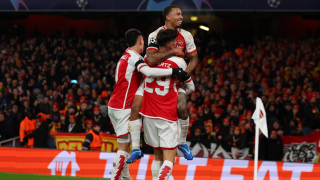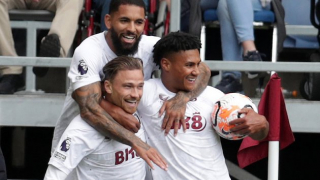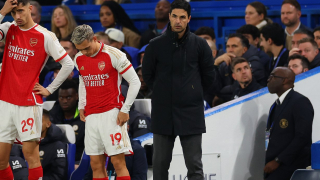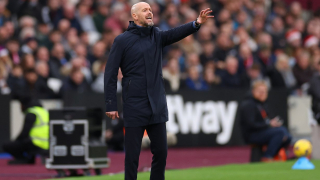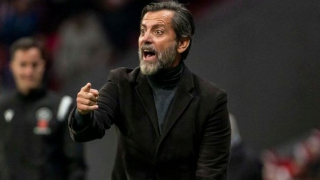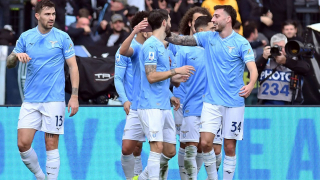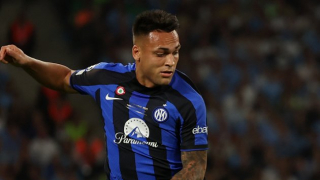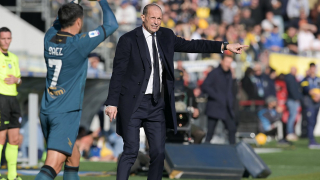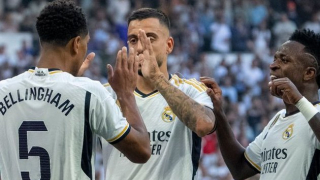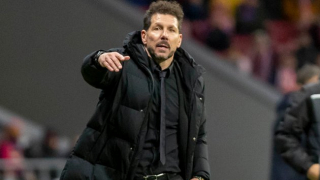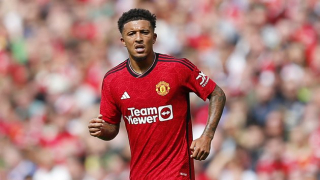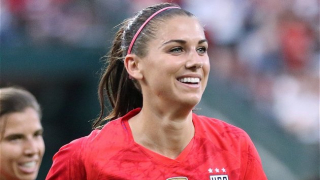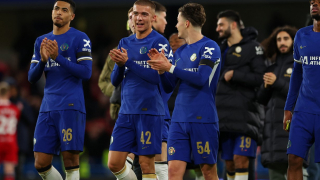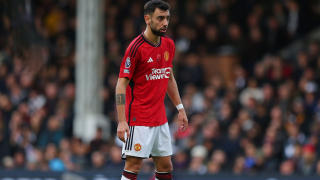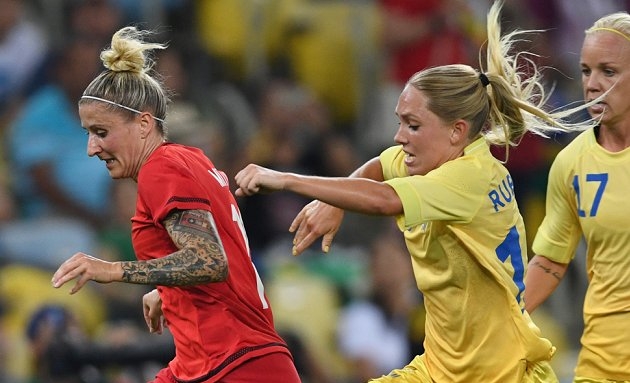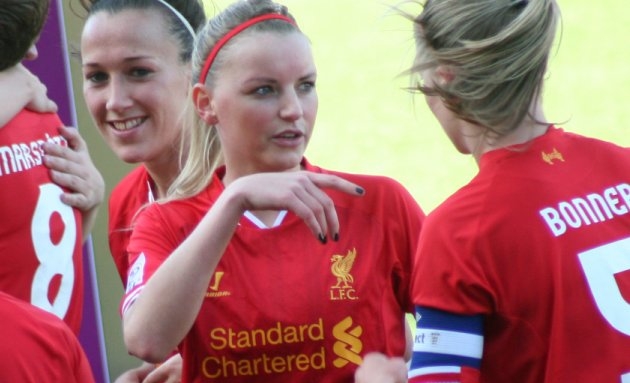We present four takeaways from the 2016 Olympic Games Women's Football Tournament which wrapped up last week.
Canada and Germany look to be building nicely for France 2019
Germany's 2-1 victory in the 2016 Olympic Games Final over Sweden and Canada's defeat of Brazil by the same score in the third place match, along with their respective form throughout the tournament, position both sides as definite title contenders ahead of the next major tournament, the 2019 World Cup in France.
Germany fell short of the final at last summer's World Cup in Canada, falling to England in the third place match, while Canada's tournament exit also came at the hands of the Lionesses, in the semifinal. Canada looked strangely lethargic and out of sorts in that quarterfinal before a capacity home crowd in Vancouver.
Before their August 19th third place match with Brazil in Sao Paulo, John Herdman had indicated that the pressure on the home team was considerable: “Brazil will have a home crowd that will be willing them on all the way. It will be a pretty hostile crowd for Canada, we know that, but we also know what kind of pressure they will be under having hosted a home FIFA Women's World Cup."
Canada dispelled the idea of a team that couldn't handle pressure, winning their second consecutive Olympic bronze medal. This is a tremendous achievement, given that this reporter was in Germany five years ago at the nadir of Canada's implosion at the 2011 Women's World Cup, when they lost 4-0 to France and finished dead last of the 16 teams in the tournament. Caroline Morace, then head coach of the Maple Leafs, told me after the France match that the media should not blame the players, that: “they had given all that they could."
She felt that the pool of top level Canadian players was too small and lacked sufficient skills to compete with the premier teams. English native John Herdman took over after guiding New Zealand through two World Cup cycles and in less than a year had Canada on the medals stand in London. Probably Herdman's greatest achievement—besides two consecutive Olympic bronze medals--is instituting a fluid ball control style of play. He took the core of the same team from Morace's train wreck and not only got more out of them, but changed the team culture and playing style. I have followed the team closely as media since 2000—including years as a reporter for a Canadian magazine and website—and have never seen the team play better or more attractively than they have in Brazil. Even at the World Cup in 2003, when they lost a semifinal by surrendering two late goals to Sweden, the team would struggle to string three passes together and relied on the long ball tactics of their Norwegian head coach Even Pellerud, who did much to improve the acceptance of women's soccer in the country in his eight years in Canada.
Four years hence, the 2016 Olympic Games effort was a high point in the team's development. Forward Janine Beckie (Houston Dash), the American-born 22-year-old whose parents both are Canadian, started the tournament with a goal in the first minute against Australia. Canada defeated the favorites Australia 2-0, despite playing two-thirds of the match without defender Shelina Zadorsky after her red card expulsion. They were the only side to win all three of their group matches. The semifinal loss to Germany (2-0) notwithstanding, the Canadians played confidently, creatively and with strong ball movement and control.
Canada's two goals in the third-place match versus Brazil came via counterattacks from 17-year-old Deanne Rose and evergreen Christine Sinclair (33), who scored her 165th goal in 250 international matches, but Canada did deserve the victory. Herdman said after the game in front of 39,718 in Corinthians Stadium in Sao Paulo: “It was pretty surreal the whole experience. The crowd was fantastic. There was just an inner belief that it was going to happen today. These girls were very clear in what they wanted to do. It has just been a great experience: this whole tournament has been fantastic."
Canada has marvelous young talent like Beckie, Rose and teenager Jess Fleming (UCLA) along with college players Kadeisha Buchanon and Ashley Lawrence (both West Virginia University) in defense. Stephanie Labbe (Washington Spirit) in goal did well subbing for long time starter Erin McLeod (FC Rosengard), who was injured this season playing in Sweden. The Rio Games experience shows that more success is coming in future years for the Canadians.
The Canadian Soccer Association does need to sort out a strategy for the professional game, to either institute a national league (semipro would work--modeling off of the Super League in England or the W-League in Australia) or fully commit to the NWSL by adding one or two franchises (Vancouver and Toronto or Ottawa would be the most likely cities) with Vancouver Whitecaps, a long-time power in the now defunct amateur W-League and the one-time home of current Liverpool and English international goalkeeper Siobhan Chamberlain, a natural to leverage their strong MLS base as Portland Thorns have done. Current NWSL expansion team reports have focused on Los Angeles, Salt Lake City, North Carolina and Atlanta in the past, but no Canadian markets.
Germany's head coach Silvia Neid retires with Germany's first Olympic Games title and some younger players to build on for France in 2019 including: forward Dzsenifer Marozsan (FFC Frankfurt) who scored in the Final, midfielder Melanie Leupolz and defender Sara Daebritz (both Bayern Munich).
UEFA had the two Olympic finalists for the first time, while France qualified for the quarterfinals, falling to Canada 1-0 on a Sophie Schmidt (FFC Frankfurt) goal after an hour. Sweden received a lot of negative press for their defensive approach against the U.S. and Brazil in the first two knockout matches, but head coach Pia Sundhage—attempting to win her third Olympic Gold medal as coach—was honest about her tactics. It does show that “bunkering in" is no longer just an approach for an overmatched side, such as Thailand in last summer's World Cup, and speaks to the further evolution of the tactical aspects of game planning in women's football.
The two English Super League imports—goalkeeper Hedvig Lindahl of Chelsea and Kosovare Asllani with Manchester City--had fine tournaments. It will be interesting to see if more of the younger Swedish players move to England for the 2017 season.
U.S. - Changes could be coming
We talked last week about the next 9-12 months being a transitional period for the American team, after losing to Sweden in the quarterfinals on penalties, the first of 13 Olympic Games or World Cup tournaments that they have failed to make the semifinals. Besides player changes (retirements, new players brought in, possible moves abroad), with head coach Jill Ellis' job status unsure, and the effect of the loss on attendances for upcoming friendly matches, the largest unknown is the Collective Bargaining Agreement renewal for the Players Union, where equity pay with the men's national team is the stated goal. The loss does emphasize how difficult it is for a team to win a World Cup and then Olympic Gold within a year—something which has still never been accomplished.
U.S. Soccer will also focus on the two FIFA youth World Cups during the last three months of 2016: the U-20 World Cup in Jordan and the U-17 World Cup in Papua New Guinea. Besides the interest in these important tournaments being held in developing regions (particularly with a FIFA world women's tournament coming to West Asia for the first time), the U.S. is prioritizing a win. Michelle French, the head coach and former WUSA professional with the Washington Freedom and San Jose CyberRays, will be under pressure to deliver a title, which the U.S. last won in 2012 in Japan. In 2014, the U.S. lost to North Korea on penalties in the quarterfinals. French received some good news in that Mallory Pugh will play in Jordan while attending UCLA, though not playing on the college side this fall. She will still have four years of eligibility, though no one expects that this generational talent will wait that long to turn pro.
The U-20 World Cup is vital for the development of the women's game and each tournament uncovers players who quickly go on to be key for their full international sides—not just in the U.S. but all around the world. For the U-17's, the U.S. didn't even make the Final Tournament in 2010 and 2014. In 2012 they fell at the group stage and only in the first tournament in 2008 did they make the final in New Zealand, losing to North Korea. B.J. Snow (formerly coach at UCLA and married to two-time Olympic Gold Medalist midfielder Lindsay Tarpley) will be under considerable scrutiny to at least make the semifinals and uncover some players who can move right up the age level national team tree.
It has seemed that the past two weeks has largely consisted of Hope Solo's 'Cheating, Zika' rants that has put her in contention with American swimmer Ryan Lochte (Yes, I was mugged; No, I was just a sloppy drunk) and Russian swimmer Yulina Efimova (I've cheated in the past with doping but the IOC cleared me at the last minute so everything is fine) for 'Worst Olympic Athlete Ambassador Award." From that aspect, the end of the games is welcome.
African Teams Had Solid Efforts in Brazil
South Africa won its second point in two Olympic Games with a 0-0 tie with Brazil (four years ago they had a 0-0 tie in London with ultimate silver medalists Japan) after a narrow 1-0 opening game loss to Sweden. They didn't score at all but only surrendered 3 goals. Zimbabwe let in 15 goals in 3 matches, including 6 against both Germany and Australia but scored against both sides, as well as Canada (3-1) Their late goal against Australia cost the Matildas a second place spot in Group F instead of Germany.
The Australians lost to Brazil on penalty kicks in the quarterfinals, while Germany had an easier draw against China (1-0). The Banyana Banyana needs to continue to build its domestic game in an attempt to qualify for its first World Cup in 2019 but are building well with Dutch coach Vera Pauw. For Zimbabwe, despite domestic upheavals and economic difficulties, this is a chance for the Football Federation to build on the Olympic appearance, to continue to have the team play friendlies, to tour outside of the country and try to place their players in U.S. colleges or with higher level clubs in other countries.
World Cup and Olympics Support each other on the Women's Side
After six editions, the Olympic Games remain a very important senior tournament on the women's side. Rather than the continually maligned men's tournament, which is a U-23 tournament with three overage players allowed—an approach that FIFA developed to prevent the Olympics being seen as the equivalent of a World Cup--the women's football tournament at the Olympics enhances the statue of the women's game and provides developing markets such as South Africa and Zimbabwe an additional opportunity to field their national teams and build momentum.
The U-23 concept is not viable on the women's side and probably wouldn't be for at least 10-20 years, as both senior tournaments work together to present senior women's football to the world within a year of the World Cup, and help to grow the game globally.
Tim Graineyis a contributor to Tribalfootball. His latest book is Beyond Bend it Like Beckham on the global game of women's football. Get your copy today.
Follow Tim on Twitter:@TimGrainey

